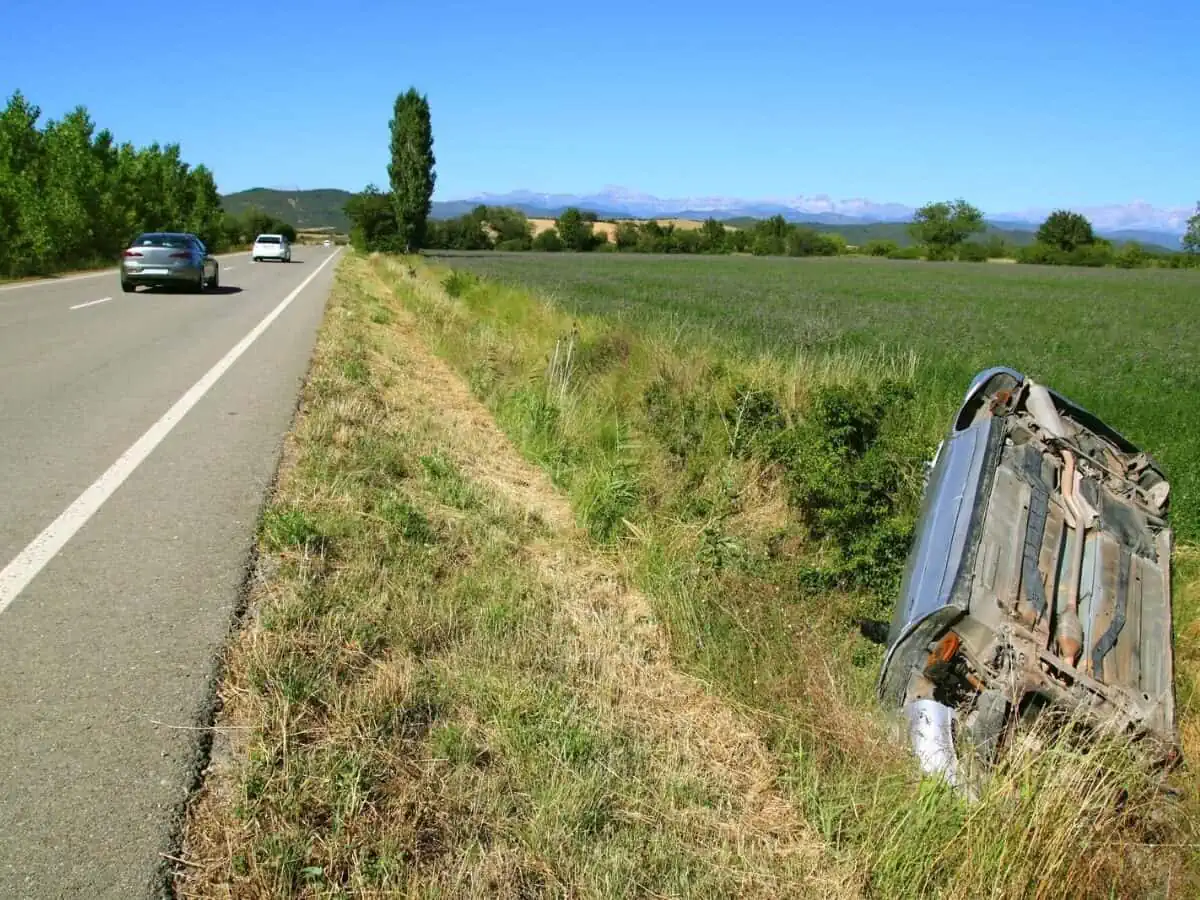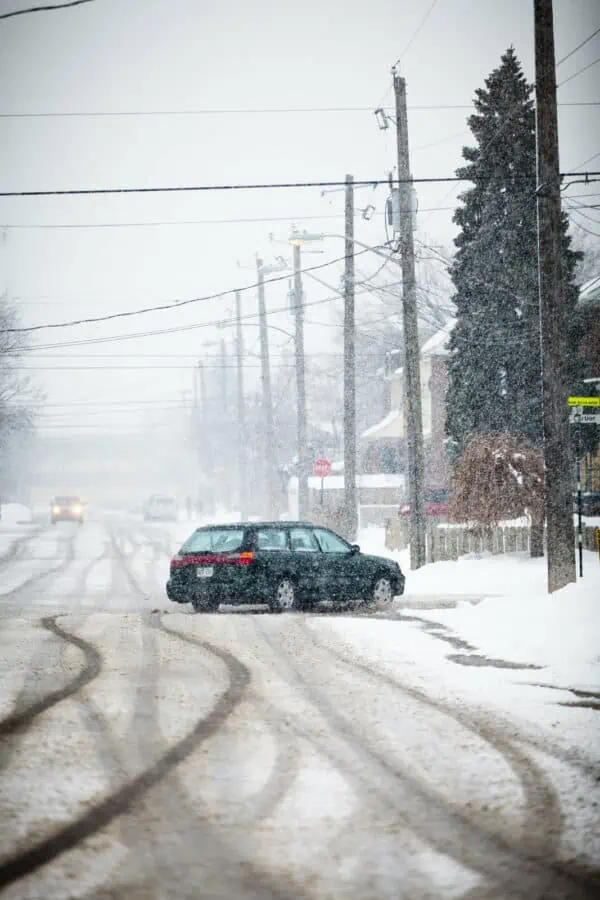Traffic accidents in Texas are more prevalent than ever before, raising the chances of you being involved in one or affected by one. It’s no wonder the state requires all drivers to prove they can pay for the damages via insurance or their finances. So, where does the state lay the blame when you’re involved in an accident? Is Texas an at-fault state?
Texas, like the majority of the other states, is a “tort” or “at-fault” state. Texas law states that the person responsible for a car accident is liable for the cost of the victim’s vehicle, property damage, and any medical bills and loss of income.

What Makes Texas An At-Fault State?
States have different laws regarding auto accidents, and which party (or their insurance) would be responsible for the costs of damages and injuries resulting from them. Most states have an at-fault policy, while only twelve subscribe to no-fault regulations. Texas falls into the former category.
When you’re involved in a car accident in an at-fault state like Texas, the driver causing the accident is responsible for paying for all the victim’s expenses, including vehicle or property damage and injury costs, usually via their insurance policies.
The person who caused the crash will use the property damage liability part of the policy to cover the other driver’s vehicle damage. If the other person has injuries incurring medical bills, the bodily injury liability policy will cover their medical bills.
Insurance Policies
These insurance policies will provide financial coverage up to specific limits. Anything further comes out of the at-fault driver’s pocket. Suppose this driver has Personal Injury Protection (PIP) or medical payments insurance. In that case, the policy may assist in paying for their injuries or those sustained by their passengers up to the policy’s limit.
At-fault states like Texas also allow people involved in accidents to file lawsuits against the individual who caused the crash. The statute of limitations on filing a lawsuit against the at-fault person is two years in Texas.
No-fault states operate differently regarding car accidents. In the twelve states that follow this system, regardless of who caused the collision, each party’s insurance will pay for their own losses or injuries. PIP is compulsory in these states.

When To Report A Car Accident In Texas
A driver of any vehicle involved in a collision must report the crash to the police department (if it happened within a municipality) or the sheriff’s office (if it occurred outside a municipal area) when:
- A person was injured or killed
- A vehicle was damaged to the extent that it could not be driven safely from the scene.
This is according to the Texas Transportation Code section 550.026
No laws govern the reporting of accidents to car insurance companies. However, these companies usually require their policyholders to report them within a reasonable period, usually about a week after the collision. Insurance companies may refuse to pay for damages if they take too long to report the accident.
The sooner the insurance company is aware of the accident, the sooner it can begin investigating or defending a claim.
Texas Insurance Requirements
Texas requires all drivers to prove they can pay for damages when they cause an accident. Drivers must either purchase liability insurance or provide proof that they can afford to pay out of their pockets. Most people buy insurance for this purpose. There are different types of insurance relevant to car accidents:
| Policy Type | Coverage |
| Liability coverage | Pays for the repairs to the victim’s car and medical bills for the driver and passengers. |
| Collision coverage | Repair or replace the at-fault driver’s car |
| Medical payments coverage | Covers medical bills of the at-fault driver and their passengers |
| Personal Injury Protection (PIP) | Pays for the driver’s and passengers’ medical bills and lost wages, and non-medical costs |
| Uninsured/Underinsured motorist coverage | Pays out if an uninsured or underinsured driver hits another motorist or when there’s a hit-and-run accident. |
What Is An At-Fault Accident In Texas?
An at-fault accident occurs when a driver’s negligence results in a collision. Legally, a driver is at fault under the following circumstances:
- The driver did not behave with a reasonable amount of care on the road. If the driver drove less safely than an average reasonable motorist, they are considered “negligent.”
- The motorist’s negligence directly caused the accident.
- A driver can be considered at fault even if the insurers divide the blame 51% to them and 49% to the other driver.
Examples Of At-Fault Accidents
Some situations are more likely to lead to a driver being found at fault for a car accident.
Driving Under The Influence Of Drugs Or Alcohol
When an accident occurs with a motorist driving under the influence (DUI) or driving while intoxicated (DWI), the driver will be considered at fault, fully or at least partially, depending on the circumstances. In addition, the police will arrest the person, and they could lose their licenses for up to two years, besides any other sentences for criminal actions.
Traffic Violations
If a motorist violates traffic laws and rules of the road, that driver will be at fault in an accident. Exceeding the speed limit would immediately place a driver at fault.
Failure to follow traffic signs, signals, and directives also put a motorist at fault. This includes failing to stop at a red light or stop sign, refusing to yield, or driving the opposite way down a one-way street. These offenses are called moving violations.
Rear-Ending Another Vehicle
When a driver rams into the vehicle in front of them, insurance companies often consider them at fault because they believe the driver would have been following too closely or driving aggressively.
Distracted Driving
If a driver was busy with any other activity while driving, it could lay at least a portion of the blame at their door when an accident occurs. One of the most common causes of distraction while driving is mobile phones. It is illegal everywhere in Texas to text while driving, and many cities ban all mobile phone use while driving.

Negligence In At-Fault Accidents In Texas
Insurance companies will decide which party is at fault by examining various types of evidence and using the legal negligence concept. Pertinent information regarded as evidence could be:
- Drivers’ statements
- Witness statements
- Police reports from the scene of the accident
- Photos or videos of the crash site
- Skid marks on the road
- The damage to the vehicles
- Evidence from the crash scene, including debris or blood
Each state has different negligence laws. Texas applies the “modified comparative fault” rule when more than one party is to blame for an accident. If a vehicle accident goes to court, the jury calculates the monetary value of the plaintiff’s damages and the percentage of fault belonging to each driver.
The modified comparative fault rule decreases the plaintiff’s damages by the percentage they share in the blame for the accident. A person will not receive any damages if they are more than 50% responsible for the collision.
Insurance claims adjusters also use decisions by juries to decide on claims payments should the case have gone to court.
Facts About At-Fault Accidents In Texas
The Texas Department of Transportation released the following statistics regarding vehicle crashes in the state in 2021:
- One person died in car crashes every 1 hour and 57 minutes.
- Every 2 minutes and 12 seconds, a person was injured in a car crash.
- One reportable accident occurred every 57 seconds.
FAQs About Texas As An At-Fault State
If I’m Involved In An Accident In Texas, What Can I Claim From The At-Fault Driver?
You may claim compensation for pain and suffering, medical bills, emotional distress, property damage, and lost wages.
How Can I Obtain Compensation From The Driver That Was At Fault?
You could negotiate with the at-fault driver’s insurance company to pay you a lump sum in compensation if you don’t make any further claims. You could also file a lawsuit that allows the court to determine appropriate damages for your injury. Lawyers often settle these cases out of court.
References:
- Driver that caused the accident is responsible for paying costs: wallethub.com
- Property damage liability: bankrate.com
- Comparative negligence rule: nolo.com
- Policy types: tdi.texas.gov
- Vehicle crash statistics: https://ftp.txdot.gov
Christian Linden is a seasoned writer and contributor at Texas View, specializing in topics that resonate with the Texan community. With over a decade of experience in journalism, Christian brings a wealth of knowledge in local politics, culture, and lifestyle. He holds a Bachelor's degree in Communications from the University of Texas. When he's not writing, Christian enjoys spending weekends traveling across Texas with his family, exploring everything from bustling cities to serene landscapes.











